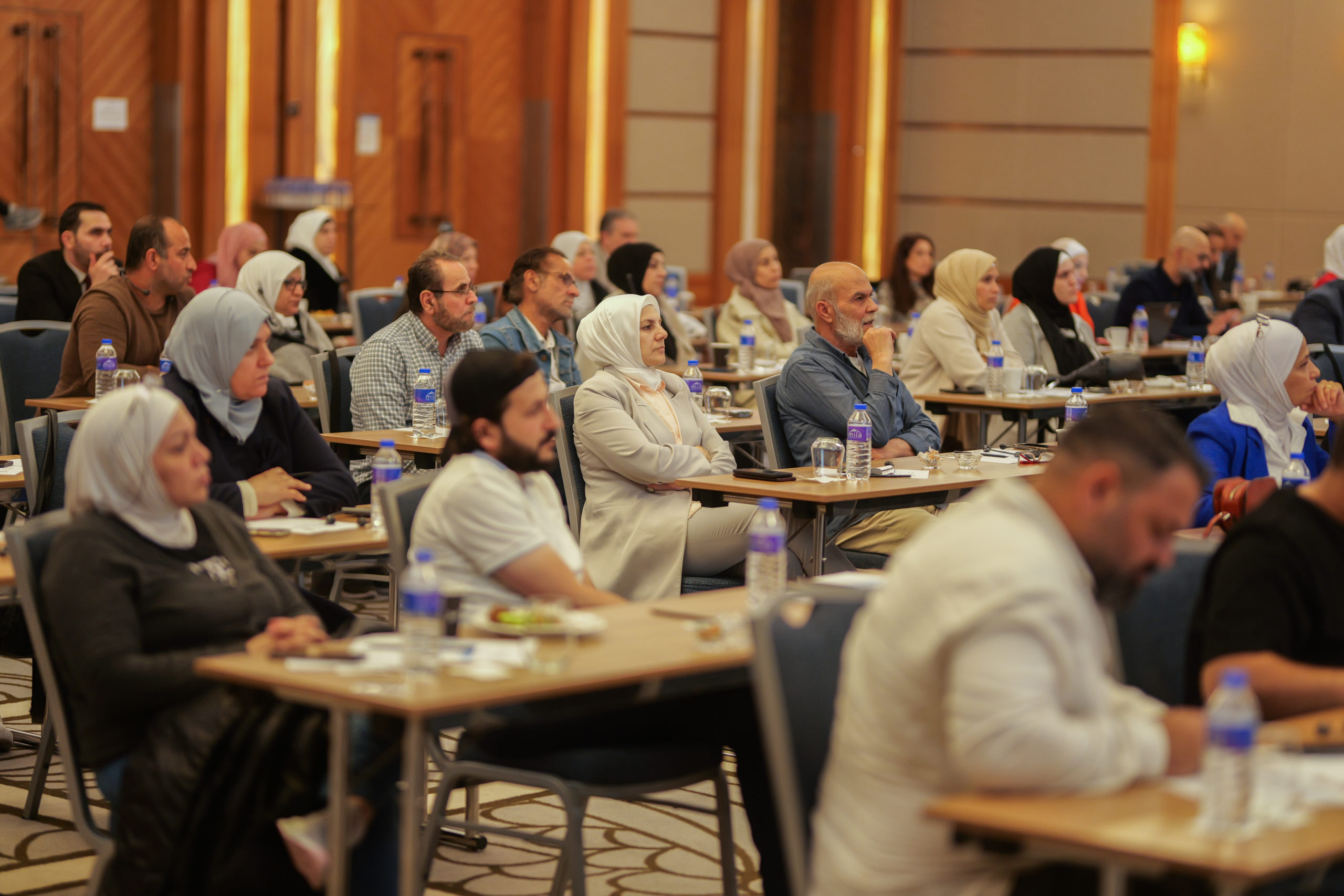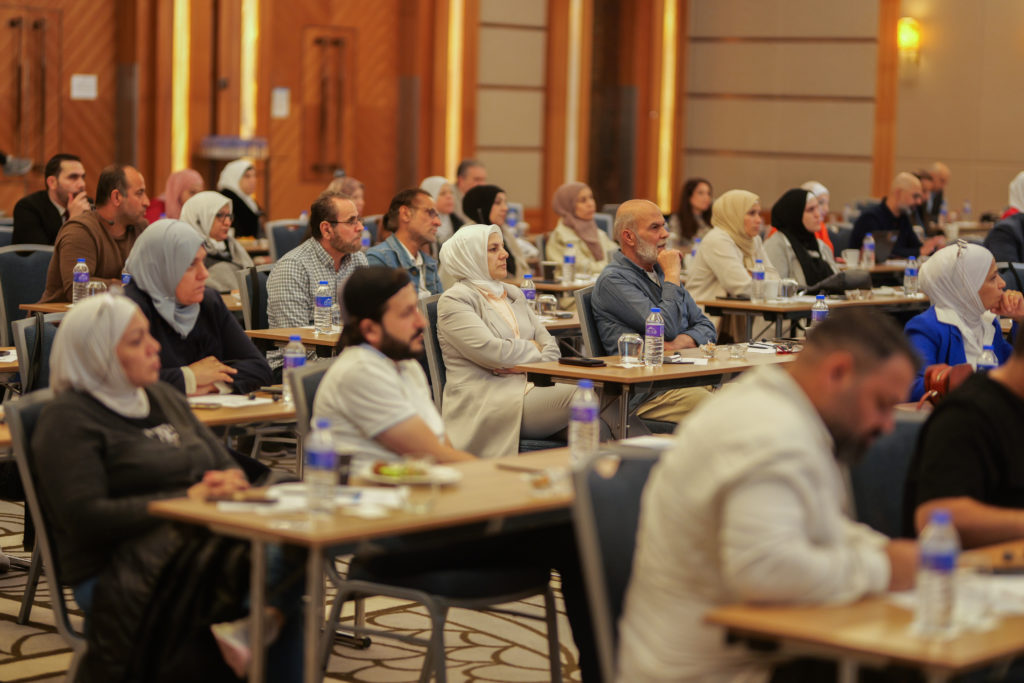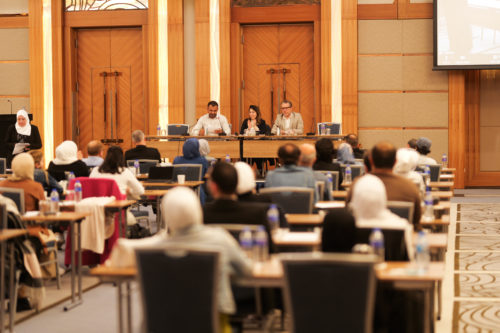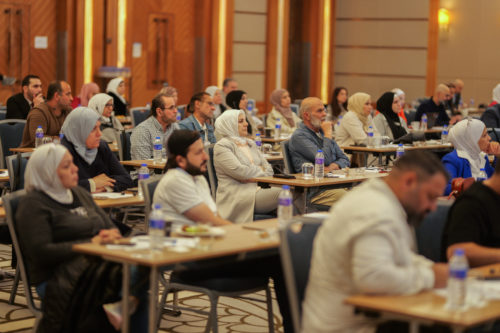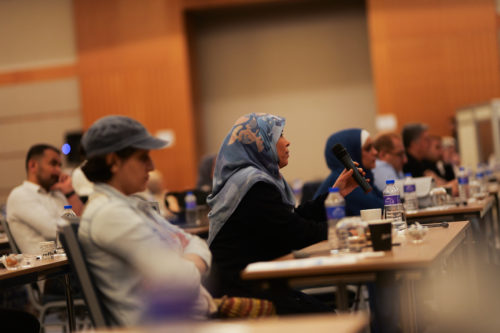A significant meeting took place, gathering survivors of detention in Syria and the Roumieh prison in Lebanon, along with families of the forcibly disappeared, in direct interaction with representatives from Syria’s accountability mechanisms. This physical meeting provided a platform for open discussions, information sharing, and the exchange of opinions and assessments.
The meeting took place on 29 May 2023 in Istanbul, and was attended by over 120 individuals. Among the attendees were survivors of detention, families of the forcibly disappeared, and representatives from international bodies and organizations specializing in accountability and human rights, including the International Commission of Inquiry on Syria (COI) and the Office of the High Commissioner for Human Rights (OHCHR).
During the meeting, representatives from these organizations provided updates on their efforts to document human rights violations and discussed the progress made thus far. Attendees had the opportunity to pose questions to the representatives, allowing for an interactive session between survivors, families, and the experts.The United Nations Independent Institution on Missing Persons and its potential role in the future in Syria was also discussed. Overall, the meeting served as a crucial platform for sharing information, addressing concerns, and fostering dialogue between the attendees and the representatives from international bodies and organizations dedicated to accountability and human rights.
The survivors and families had the opportunity to present their recommendations, fostering direct and unrestricted communication between international accountability mechanisms and victims who often face challenges in sharing their stories and expressing their demands directly.
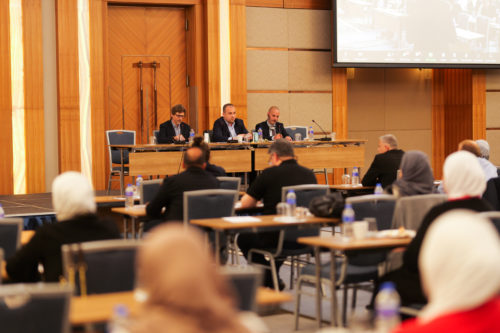
During the meeting, The Day After (TDA) showcased a poignant film titled “If They Were With Me.” The film captures the heartbreaking experiences of two mothers whose children have been forcibly disappeared. It delves into the anguish of loss, the arduous journey of searching for their loved ones, and the enduring hope for their return. Through the film, the families convey powerful messages and recommendations to the individuals present at the meeting who represented accountability mechanisms.
recommendations and outputs
The meeting came out with a set of recommendations based on discussions between the attendees from groups of victims, partners, and speakers of accountability mechanisms, including recommendations for the new institution for the families of the forcibly disappeared, emphasizing the importance of holding accountable those responsible for arrest and committing various violations in Syria, and giving importance to the children of the disappeared and missing. In addition to putting pressure on the various controlling parties in Syria and the countries influential in the Syrian issue to allow field visits to detention centers, both civil and military, prisons and judicial departments.
The recommendations also stressed the need for the new institution to include a body concerned with recording complaints related to violations and forcibly disappeared persons, and to have direct contact with actors from civil society organizations inside Syria and families, and to rely on the previous documentation from other mechanisms and organizations, in addition to working to provide Support and training for families.
The participating survivors called on the International Commission of Inquiry and international mechanisms working on documentation, to expand the scope of recording testimonies from women and men who were subjected to violations in Syria, and also to support local documentation projects, and to give importance to documenting cases of forced conscription and the conditions of women in Al-Hol camp in northeastern Syria.
The recommendations called on international agencies and donors to fund training projects for people inside Syria on documentation and data collection, as well as other projects for legal support for women, and networking between families and missing persons in Syria.
In addition to strengthening protection and psychological support sessions, creating safe spaces for women, and working to protect them from the consequences of normalization with the regime, such as forced returns from neighboring countries.
TDA Content
